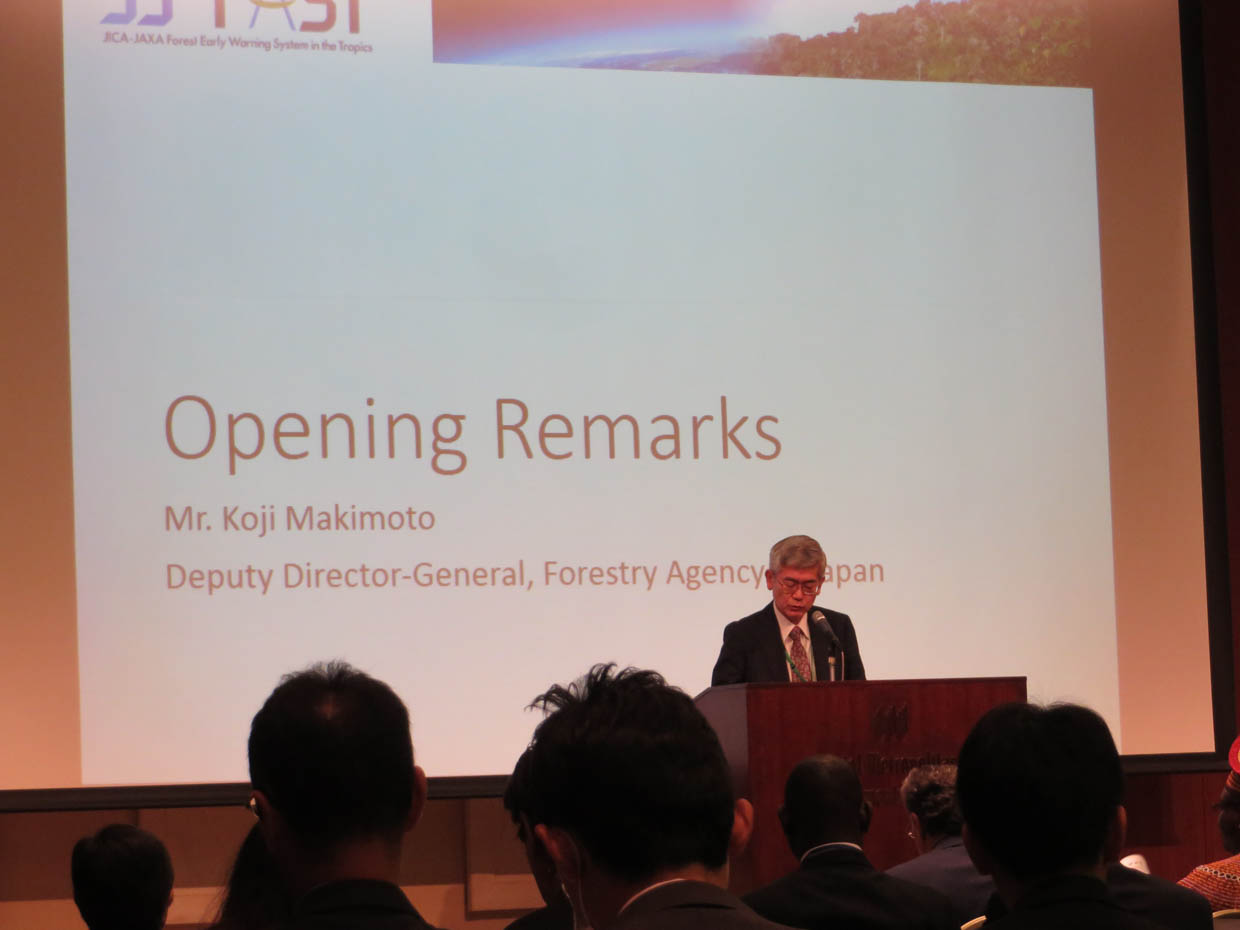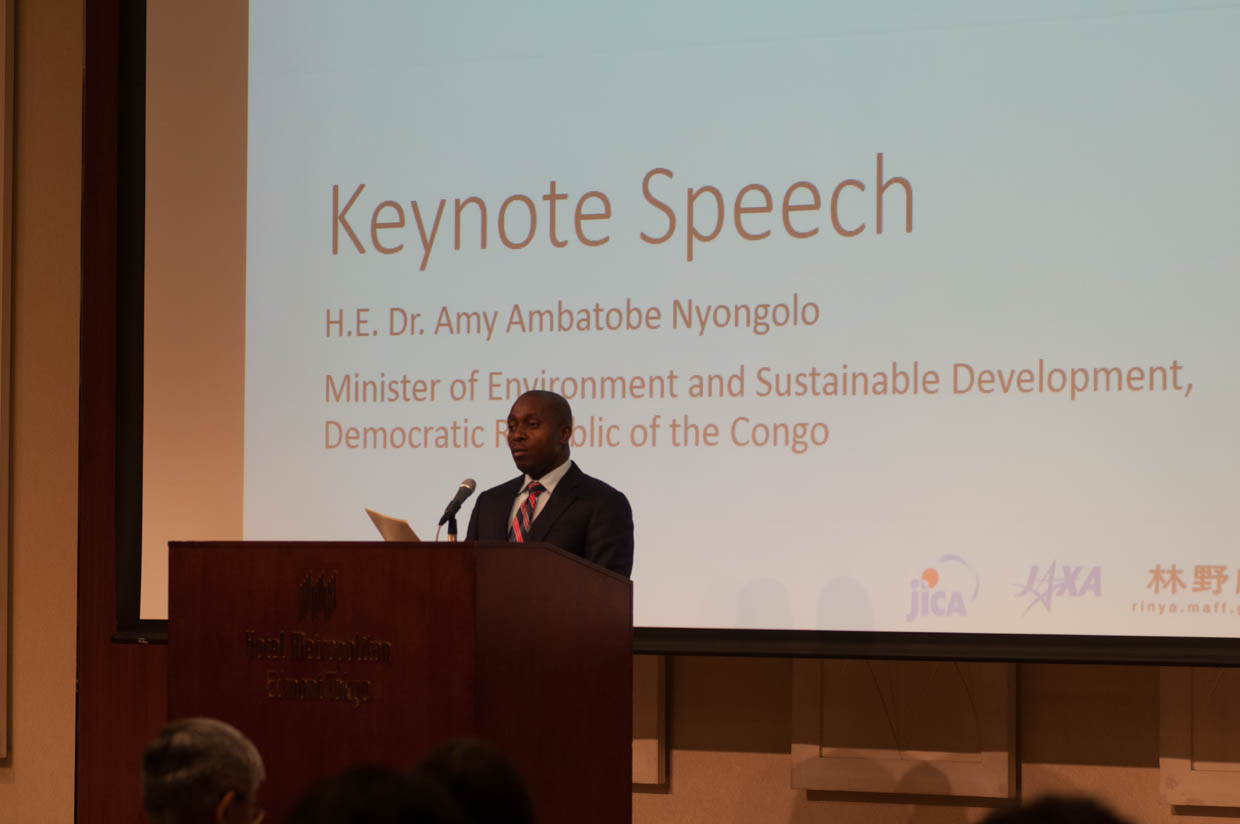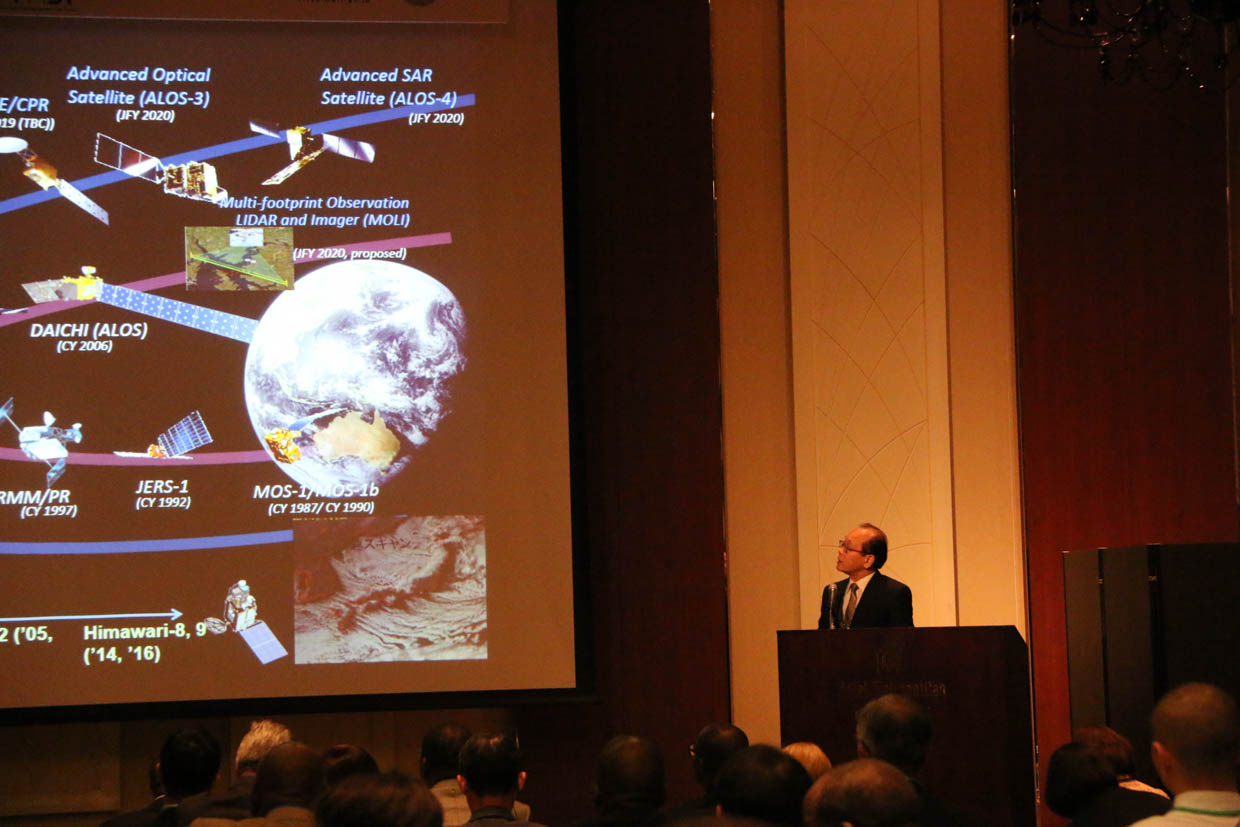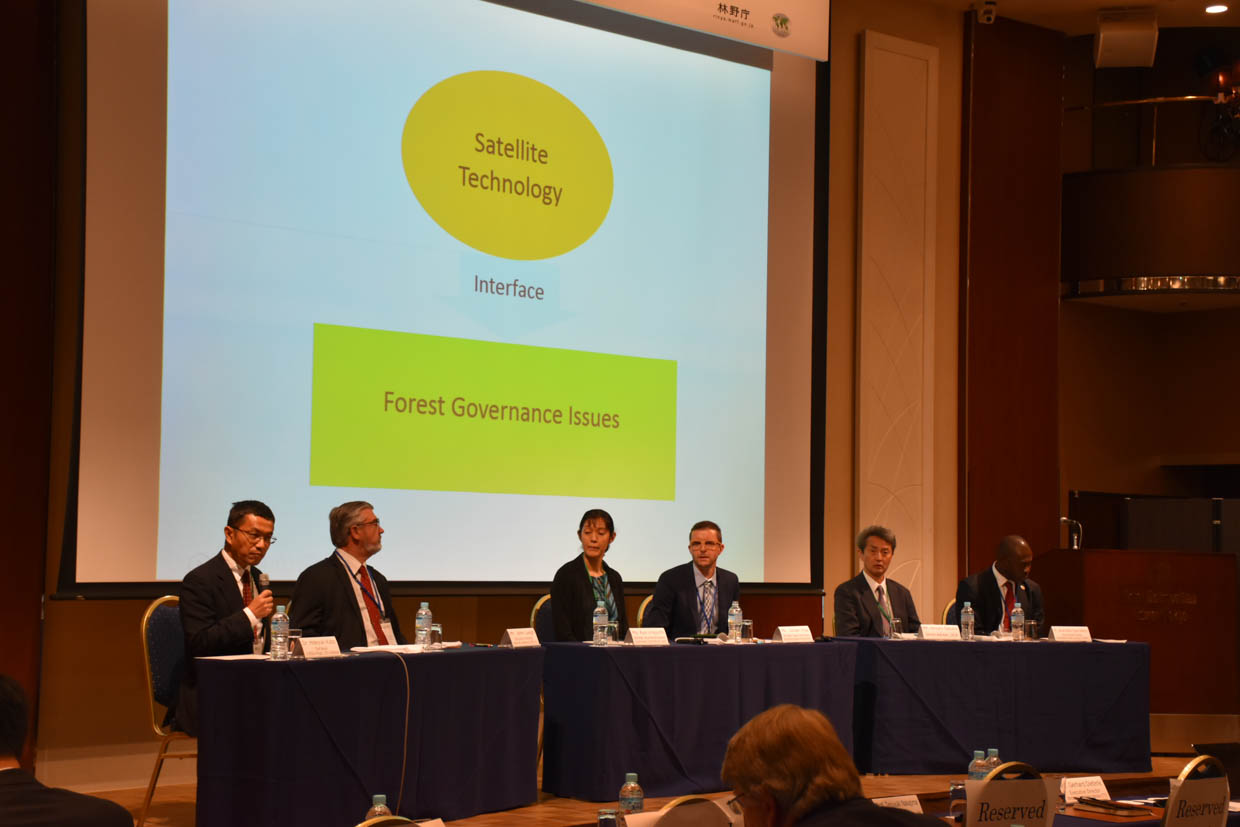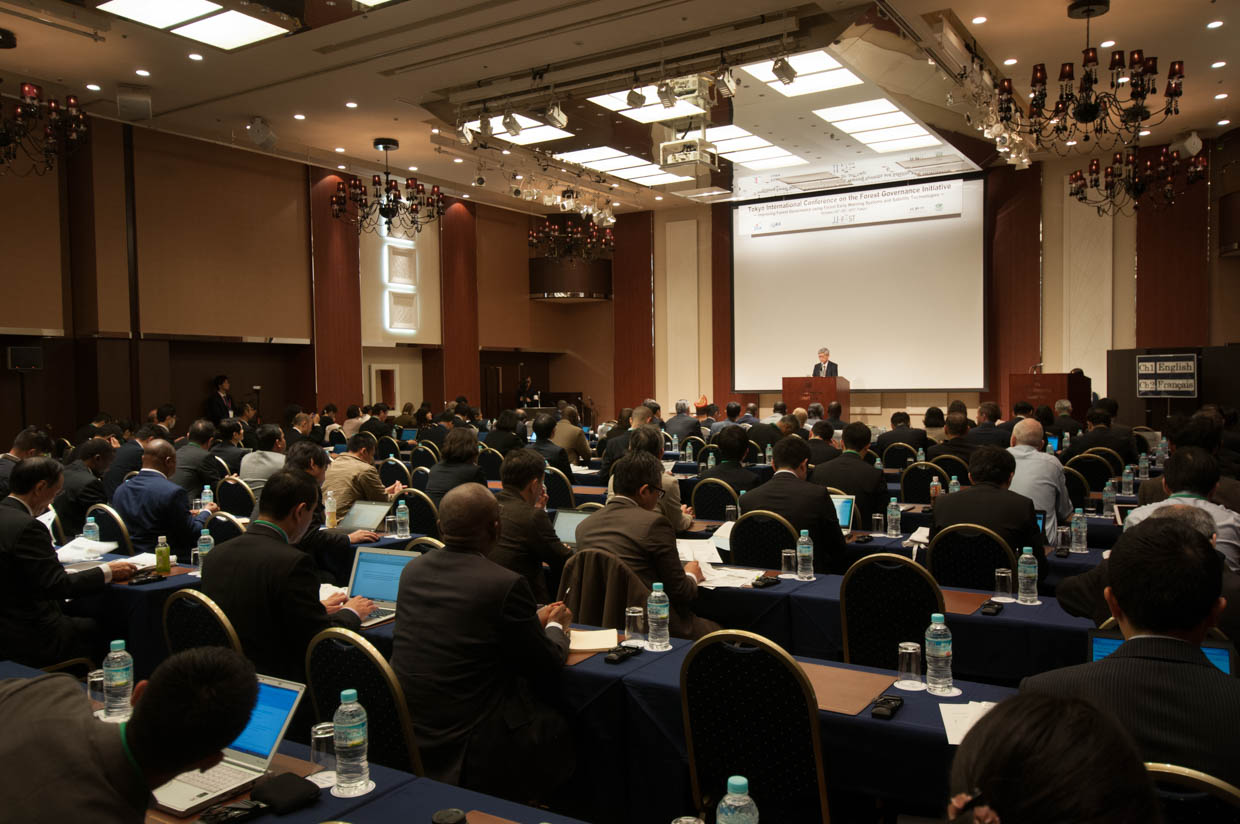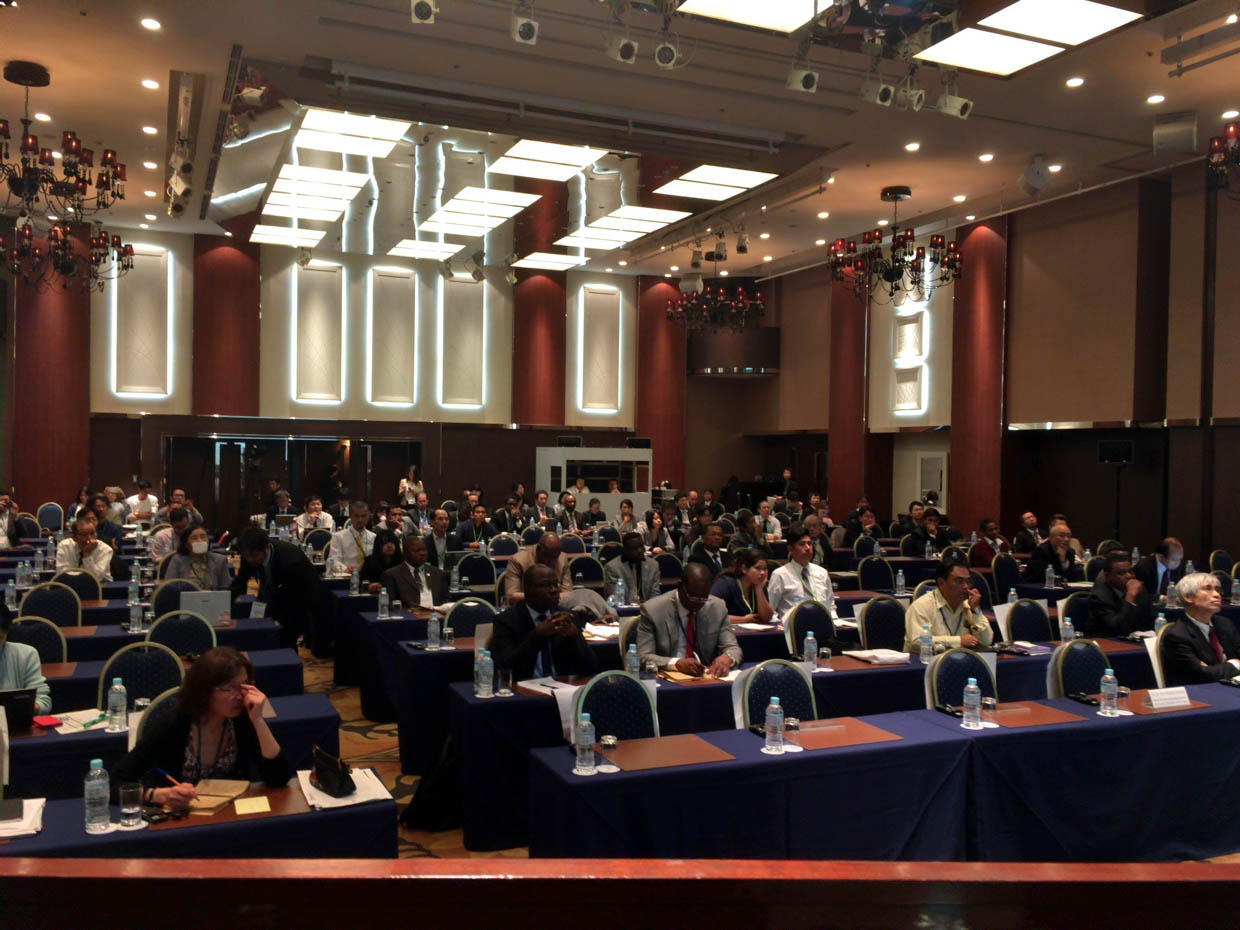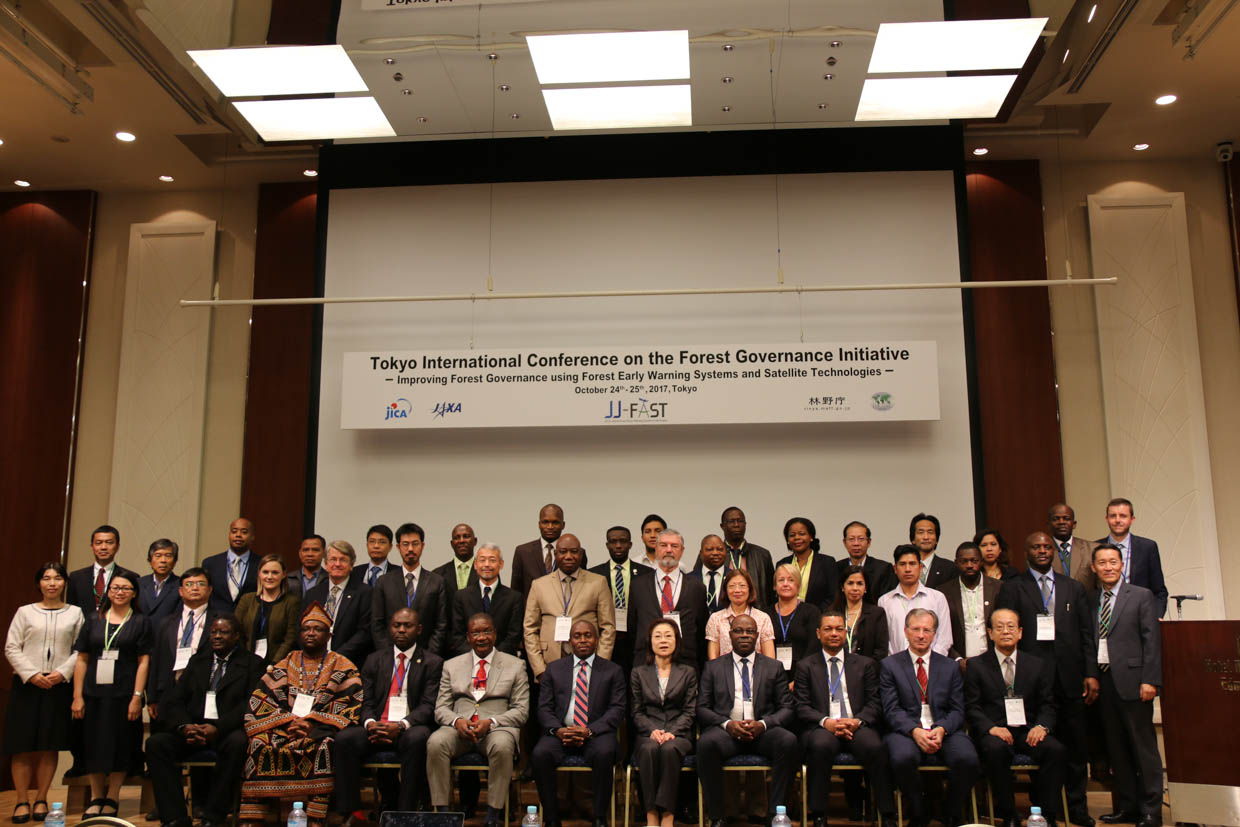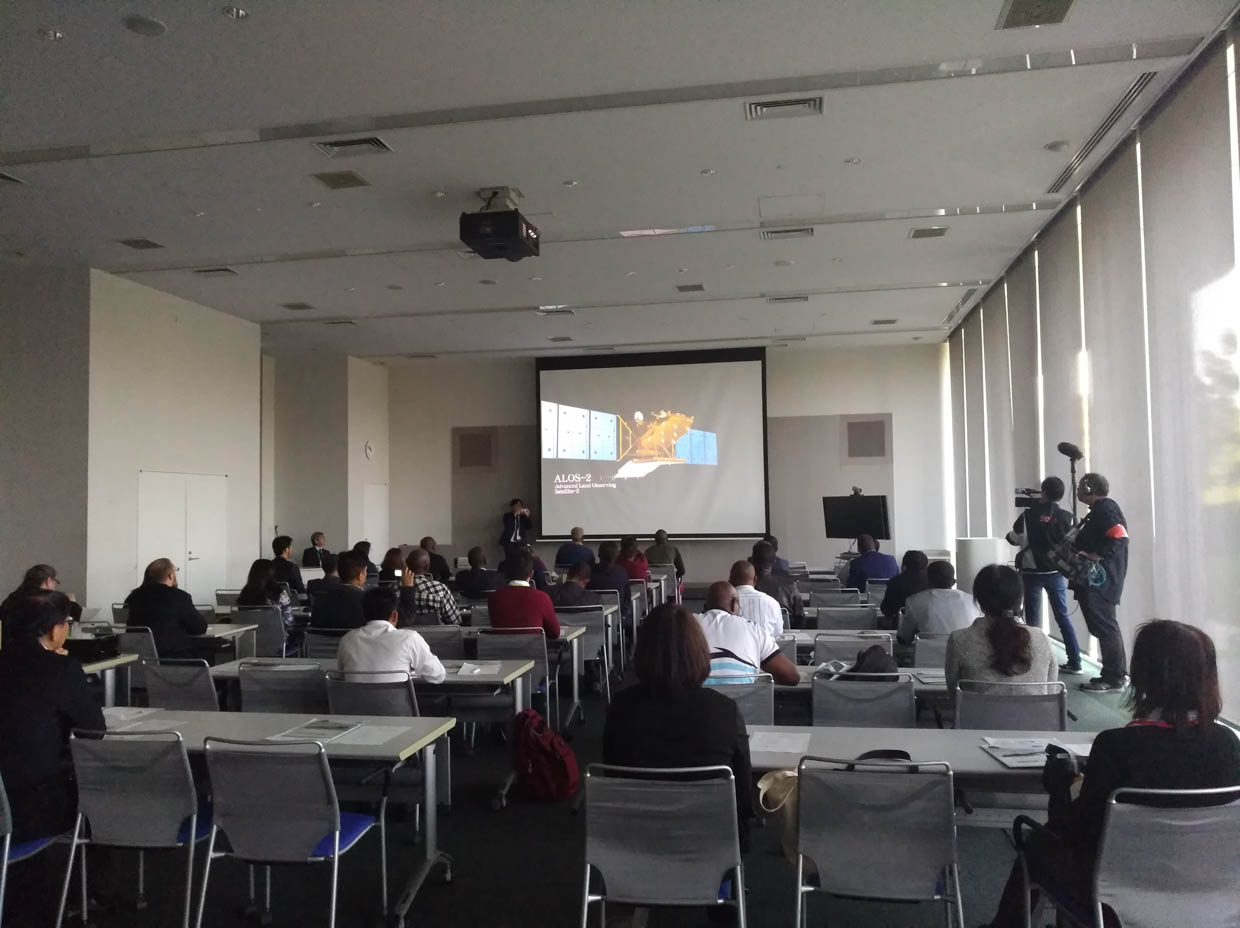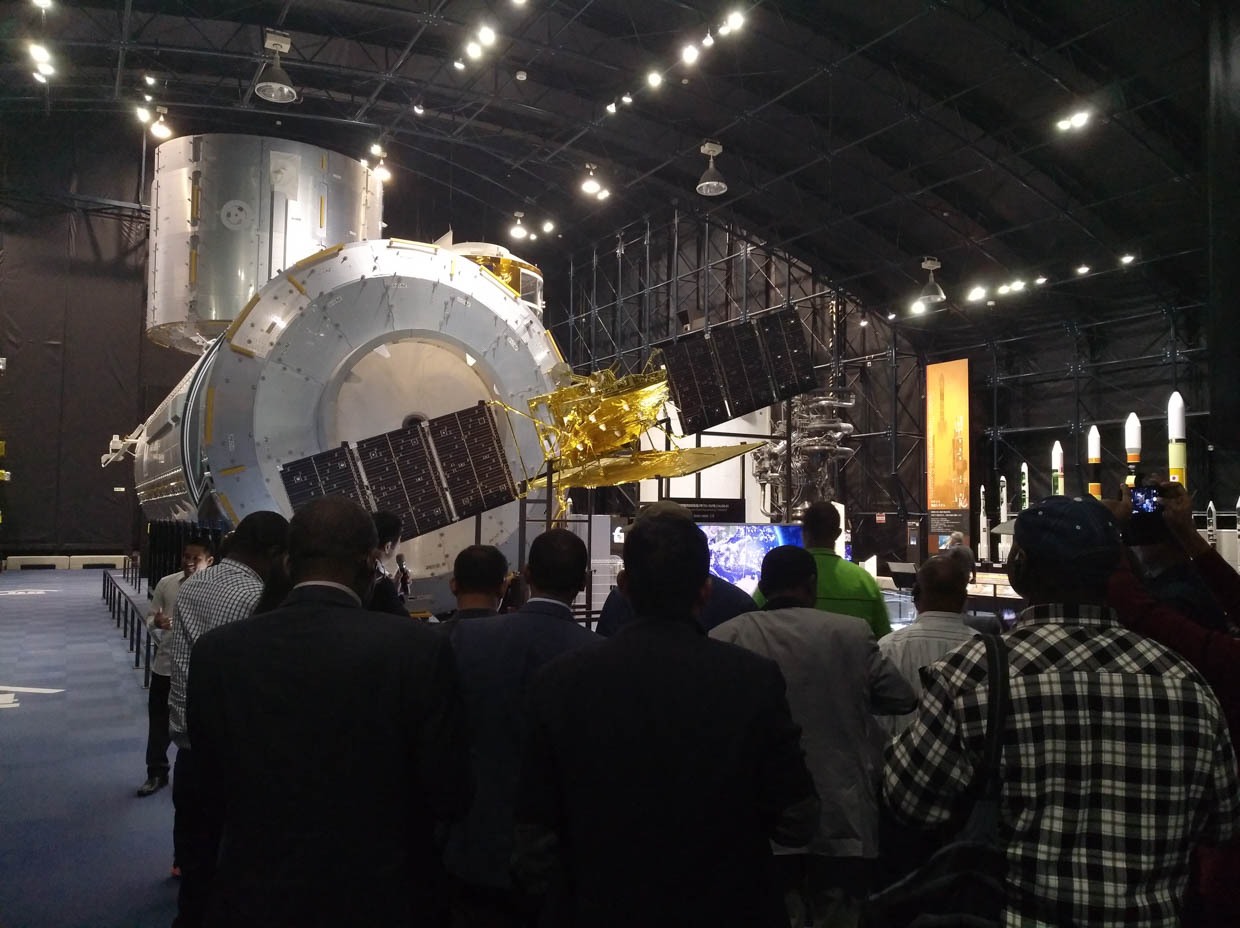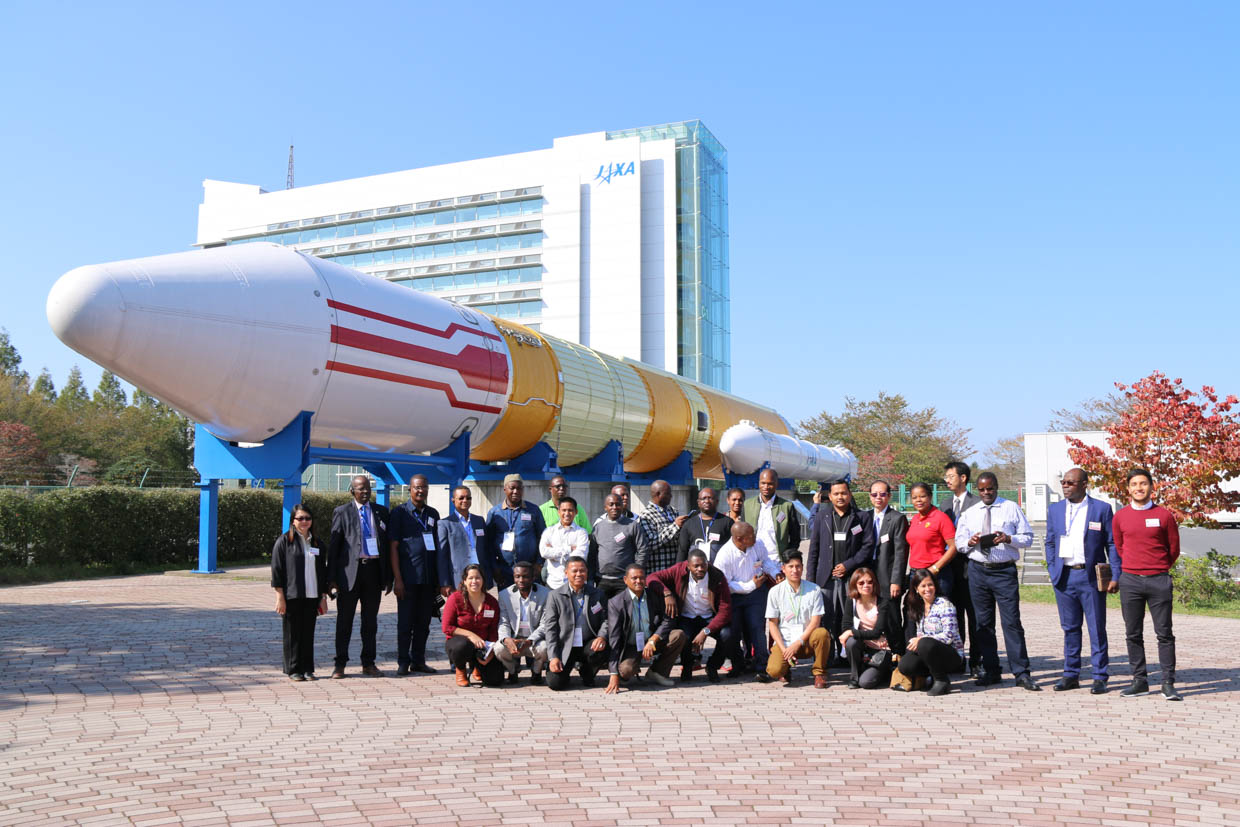Topics
Topics
Tokyo International Conference on the Forest Governance Initiative (Tokyo, October 24-26, 2017):
Improving Forest Governance Using Forest Early Warning Systems and Satellite Technologies
First International Conference on the Forest Governance Initiative
In cooperation with the Forestry Agency of Japan and the International Tropical Timber Organization (ITTO), JICA and the Japan Aerospace Exploration Agency (JAXA) co-organized the Tokyo International Conference on the Forest Governance Initiative that was held in Tokyo from October 24 to 26, 2017. The conference was composed of two days of sessions (Oct. 24-25) and a one-day visit for overseas participants to the JAXA Tsukuba Space Center (Oct. 26). The conference was attended by 144 participants from 24 countries representing our partner countries, international and regional organizations (including COMIFAC, FAO, IUFRO, NASA, UNFCCC, UNFF, and WRI), development partners, the private sector and civil society.
Opening Session with High-level Representatives
The following individuals made speeches or key presentations at the Opening Session: H.E. Dr. Amy Ambatobe Nyongolo, Minister of Environment and Sustainable Development, Democratic Republic of the Congo; H.E. Dr. Rosalie Matondo, Minister for Forest Economy, Republic of Congo (represented by Mr. Etienne Yoyo, Director General of Forest Economy); Dr. Gerhard Dieterle, Executive Director, International Tropical Timber Organization (ITTO); Mr. Koji Makimoto, Deputy Director-General, Forestry Agency of Japan; Ms. Noriko Suzuki, Senior Vice President, JICA; and Prof. Teruyuki Nakajima, Director, Earth Observation Research Center (EORC), JAXA.
Conference Key Question: How can countries use satellite technologies to promote forest management effectively?
Forests - particularly tropical ones - are directly and indirectly contributing to the UN Sustainable Development Goals (SDGs), and they are also critical for economic development, biodiversity conservation, and climate change measures. However, monitoring and managing forests sustainably is not an easy task - especially for developing countries -- due to factors such as their huge area, accessibility, insufficient resources and capacity. Given this, satellite technologies are indispensable in the monitoring and managing of forests these days.
In light of this, the conference was held with the aim of providing participants with opportunities to exchange views on the following: 1) how developing countries can promote forest management effectively, including by means such as tackling illegal deforestation activities, using JJ-FAST and other forest early warning systems and satellite technologies and implementing the necessary policy measures; and 2) how development partners can support a country's efforts. The sessions focused on two different aspects of the issue: governance and satellite technologies.
Discussion: Satellite technologies present many opportunities to address forest-related challenges, but good governance is indispensable
During the conference, the challenges faced by our partner countries and the international community in terms of improving forest governance by using the tools of forest monitoring and forest management were discussed. The participants recognized that the effective use of satellite technologies, such as JJ-FAST and other satellite-based systems, present many opportunities to address these challenges. The participants pointed out the need for these satellite-based systems to meet the needs and circumstances of the relevant developing countries and stakeholders and for them to be user-friendly solutions that require fewer resources and technical inputs. They also pointed out that several satellite-based systems are now available - including JJ-FAST, Global Forest Watch, SEPAL, and GLAD - and that they each have different advantages and disadvantages. Therefore, these systems should be used in a complementary and comprehensive manner. Furthermore, the participants shared a common understanding that technologies or systems cannot provide a single solution for all forest-related challenges and that effective solutions require good forest governance, such as strong political will, effective policies, law enforcement, anti-corruption measures, capacity building, and effective coordination among stakeholders.
Discussion: JJ-FAST can be an effective tool for forest management, and further upgrading of its functions is expected
The participants expressed great interest in JJ-FAST and had high expectations that it would prove to be an effective tool for forest monitoring and management through its incorporation in national forest monitoring systems and management plans based on their needs and objectives. Further study would be beneficial in seeking an effective means of utilizing JJ-FAST in the enforcement of regulations designed to address illegal deforestation activities, the tracking of legally harvested wood and wood products, the conducting of appropriate concession management and the implementation of other measures. The functionality of JJ-FAST can be enhanced to allow it to be used more effectively by developing countries and all stakeholders in conjunction with other available systems and tools both complimentarily and comprehensively. At the same time, participants pointed out that JJ-FAST, which is still a new system, has room for improvement in terms of matters such as the size of objects that can be detected and accuracy (e.g., through the use of dual polarization and time series data on multiple data items). The JJ-FAST Development Team requested participant feedback from the field as it would help them to improve their algorithms and data accuracy.
Conference Outcomes
The output from each session was summarized by the moderators and shared with the participants. At the end of the conference, the co-organizers issued the "Statement on the Tokyo International Conference on the Forest Governance Initiative," which incorporated the findings from the various sessions and called for further partnerships among the stakeholders.
Visit to JAXA Tsukuba Space Center
On October 26, overseas participants visited the JAXA Tsukuba Space Center (TKSC) to learn about JAXA's mission and its space activities.
| I. Details of the Conference |
| II. Details of the Sessions |
| Day 1 (October 24) |
| Session I Opening Session |
| Session II Sustainable Forest Management Using Forest Early Warning Systems and Satellite technology |
| Day 2 (October 25) |
| Session III |
| Group 1 (Governance Session): Improving forest governance using the JJ-FAST and satellite technologies along with policy measures |
| Group 2 (Technical Session): Strengthening national forest monitoring based on the JJ-FAST and satellite technologies |
| Session IV |
| Wrap-up Session |
| Visit to JAXA Tsukuba Space Center (Day 3, October 26) |
